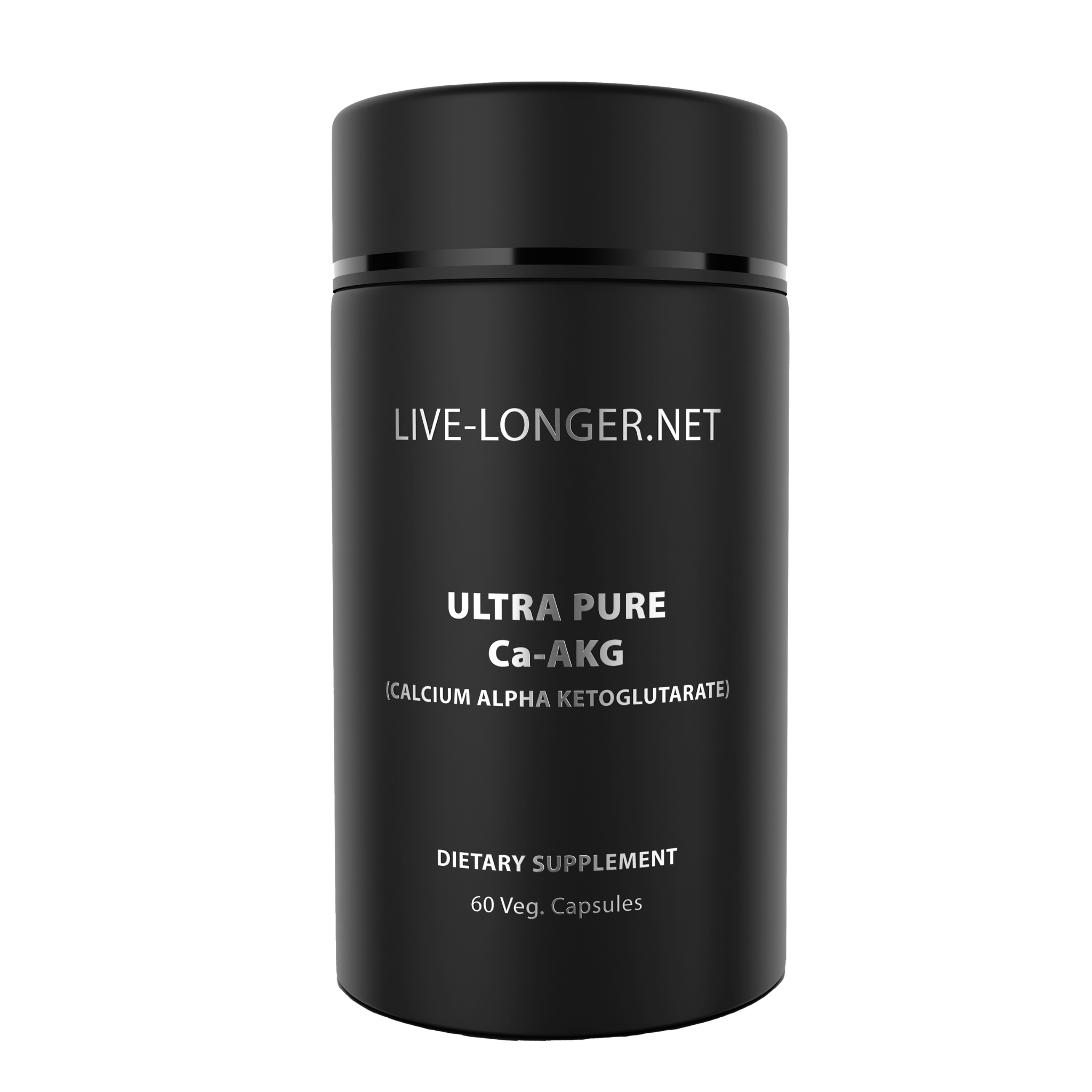Sleep is a fundamental aspect of human health. It influences both physical and mental well-being. As we age, sleep patterns and quality can change significantly, which impacts various aspects of our health. In fact, good sleep can enhance the quality of life and longevity. Therefore, understanding the relationship between sleep and aging is important.
In this blog, we will discuss the connection between sleep and aging. We will also shed light on what happens to our sleep as we age, the benefits of good sleep, and practical ways to improve sleep quality.
What Happens to Our Sleep as We Age?
Research indicates that nearly 40% to 70% of older adults suffer from chronic sleep issues, with up to half of these cases going undiagnosed (1).
As people age, their sleep patterns undergo significant changes. Older adults tend to experience a shift in their circadian rhythms, leading to earlier sleep and wake times. Additionally, aging results in lighter, more fragmented sleep with frequent awakenings during the night (2). This can be attributed to changes in sleep architecture, where older individuals spend less time in deep sleep stages and more time in lighter stages.
The Science Behind Sleep and Aging
The biological processes involved in sleep are deeply influenced by aging. As we age, the production of melatonin, a hormone that regulates sleep, decreases. This reduction can disrupt the sleep-wake cycle, making it harder to maintain consistent sleep patterns (3).
Additionally, the aging brain undergoes structural changes that can affect sleep regulation. Studies have shown that older adults experience a decline in the duration and quality of slow-wave sleep (deep sleep) and REM sleep, both of which are crucial for cognitive function and overall health (4).
Sleep and Cognitive Function
Sleep plays a vital role in maintaining cognitive health. Adequate sleep helps consolidate memories and clear out brain toxins that accumulate during waking hours. Conversely, poor sleep can accelerate cognitive decline and increase the risk of conditions like Alzheimer's disease (5).
Research has found that disrupted sleep patterns and reduced sleep quality are early indicators of cognitive impairment and dementia (6). However, good sleep hygiene can help protect cognitive functions and slow down age-related cognitive decline.
Sleep and Physical Health
Quality sleep is essential for physical health, particularly in older adults. During sleep, the body undergoes vital restorative processes, including muscle repair, immune system strengthening, and hormone regulation. Poor sleep can weaken the immune system, making older adults more susceptible to illnesses.
Chronic sleep deprivation is also linked to various health conditions, such as heart disease, diabetes, and obesity. Studies suggest that adults who get adequate sleep tend to have better overall health and a lower risk of chronic diseases (7).
Hormones, Sleep, and Aging
Hormones like melatonin and cortisol play crucial roles in regulating sleep. Melatonin, produced by the pineal gland, helps control sleep-wake cycles, but its production decreases with age. This decline can lead to difficulties in falling and staying asleep (8).
Cortisol, the stress hormone, also affects sleep patterns. Elevated cortisol levels, often seen in stressed individuals, can interfere with sleep quality (9). Understanding these hormonal changes is essential for addressing sleep issues in older adults and improving overall sleep quality.
Common Sleep Disorders in Older Adults
Older adults are more prone to various sleep disorders, including insomnia, sleep apnea, restless legs syndrome (RLS), and REM sleep behavior disorder (RBD).
Insomnia, characterized by difficulty falling or staying asleep, affects many older individuals and can lead to daytime fatigue and other health issues.
Sleep apnea, where breathing stops repeatedly and starts during sleep, is more common in older adults and can lead to fragmented sleep and reduced oxygen levels.
The Impact of Poor Sleep on Aging
Chronic sleep deprivation and poor sleep quality can have profound effects on aging. Lack of sleep accelerates the aging process, leading to premature wrinkles, fine lines, and a weakened immune system (10)(11).
Moreover, as discussed before, poor sleep is associated with an increased risk of chronic conditions such as cardiovascular diseases, diabetes, and cognitive decline. Sleep deprivation also affects mental health, contributing to mood disorders like depression and anxiety. Therefore, ensuring adequate and quality sleep is essential for healthy aging and maintaining a high quality of life.
Benefits of Good Sleep for Aging Adults
Maintaining good sleep hygiene offers numerous benefits for aging adults. Quality sleep enhances memory consolidation, cognitive function, and emotional stability. It also supports physical health by promoting muscle repair, boosting the immune system, and regulating hormones.
Older adults who get sufficient sleep will likely experience better overall health, lower risks of chronic diseases, and improved mood and energy levels. Prioritizing sleep can significantly enhance the quality of life and longevity in aging populations.
How Much Sleep Do Older Adults Need?
Contrary to popular belief, older adults need about the same amount of sleep as younger adults, typically seven to eight hours per night (12). However, due to changes in sleep architecture and increased sleep fragmentation, achieving this amount can be challenging.
Older adults often experience lighter sleep and more frequent awakenings, so adopting strategies that promote uninterrupted and restful sleep is essential. Understanding and addressing the unique sleep needs of older adults can help improve their overall sleep quality and health.
Natural Ways to Improve Sleep Quality
Improving sleep quality involves adopting healthy lifestyle habits and creating a sleep-conducive environment. Some effective strategies include,
Establishing a Bedtime Routine: Going to bed and waking up at the same time every day helps regulate the sleep-wake cycle.
Creating a Sleep-Friendly Environment: Ensure the bedroom is cool, quiet, and dark. Using blackout curtains and white noise machines can help minimize disruptions.
Healthy Diet and Regular Exercise: Consuming a balanced diet and engaging in regular physical activity can promote better sleep. Avoid heavy meals, caffeine, and alcohol close to bedtime.
Limiting Naps: While short naps can be beneficial, long or irregular naps can negatively affect nighttime sleep.
Mindfulness and Relaxation Techniques: Practices like yoga, meditation, and deep-breathing exercises can reduce stress and improve sleep quality.
Managing Stress for Better Sleep
Stress is a significant barrier to good sleep. Managing stress through various techniques can greatly improve sleep quality. Some effective methods include cognitive behavioral therapy (CBT) for insomnia, which helps individuals change negative thought patterns and sleep-related behaviors.
Progressive muscle relaxation involves tensing and relaxing different muscle groups to promote physical relaxation.
Guided imagery and meditation practices help calm the mind and reduce stress, making falling and staying asleep easier.
Maintaining a relaxing bedtime routine, such as reading, taking a warm bath, or listening to soothing music before bed, can help signal the body that it's time to sleep. These methods can collectively improve sleep quality and reduce stress.
Supplement for Better Sleep
Apigenin is one natural supplement that has shown promise in improving sleep quality, especially in older adults. Apigenin is a natural compound known for its calming and anti-anxiety properties. Research suggests that apigenin can help reduce stress and improve sleep by promoting relaxation and reducing the time it takes to fall asleep (13).
Unlike some sleep medications, apigenin isn't addictive. It has minimal side effects, making it a safer option for older adults looking to improve their sleep quality naturally. Therefore, including apigenin as a night time routine can help enhance sleep quality and overall well-being.
The Connection Between Sleep and Mental Health
Sleep and mental health are closely intertwined. Poor sleep can contribute to the development and exacerbation of mental health disorders such as depression and anxiety. Conversely, mental health issues can lead to sleep disturbances, creating a vicious cycle. Adequate sleep helps regulate mood, reduce stress, and improve overall mental well-being.
Addressing sleep issues can significantly benefit mental health, particularly in older adults who may be more susceptible to both sleep disturbances and mental health disorders. Integrating good sleep hygiene practices and seeking professional help for persistent sleep or mental health issues can enhance the quality of life and emotional stability.
The Bottom Line
Sleep plays a critical role in healthy aging. By understanding the changes in sleep patterns with age and adopting strategies to improve sleep quality, older adults can enhance their physical and mental health, ultimately leading to a better quality of life and increased longevity. Prioritize sleep for a healthier, happier life.
References
- Miner B, Kryger MH. Sleep in the Aging Population. Sleep Medicine Clinics [Internet]. 2017 Mar [cited 2024 Jun 14];12(1):31–8. Available from: https://www.ncbi.nlm.nih.gov/pmc/articles/PMC5300306/
- Li J, Vitiello MV, Gooneratne NS. Sleep in normal aging. Sleep Medicine Clinics [Internet]. 2018 Mar [cited 2024 Jun 14];13(1):1–11. Available from: https://www.ncbi.nlm.nih.gov/pmc/articles/PMC5841578/
- Waldhauser F, Ková>cs J, Reiter E. Agerelated changes in melatonin levels in humans and its potential consequences for sleep disorders. Experimental Gerontology [Internet]. 1998;33(7):759–72. Available from: https://www.sciencedirect.com/science/article/pii/S0531556598000540
- Gildner TE, Liebert MA, Kowal P, Chatterji S, Snodgrass JJ. Associations between Sleep Duration, Sleep Quality, and Cognitive Test Performance among Older Adults from Six Middle Income Countries: Results from the Study on Global Ageing and Adult Health (SAGE). Journal of Clinical Sleep Medicine [Internet]. 2014 Jun 15 [cited 2024 Jun 14];10(6). Available from: http://jcsm.aasm.org/ViewAbstract.aspx?pid=29504
- Bishir M, Bhat A, Essa MM, Ekpo O, Ihunwo AO, Veeraraghavan VP, et al. Sleep Deprivation and Neurological Disorders. Martorana A, editor. BioMed Research International [Internet]. 2020 Nov 23 [cited 2024 Jun 14];2020:1–19. Available from: https://www.ncbi.nlm.nih.gov/pmc/articles/PMC7755475/
- Wu M, Rosenberg P, Spira A, Wennberg A. Sleep Disturbance, Cognitive Decline, and Dementia: a Review. Seminars in Neurology [Internet]. 2017 Aug [cited 2024 Jun 14];37(04):395–406. Available from: https://www.ncbi.nlm.nih.gov/pmc/articles/PMC5910033/
- Reis C, Dias S, Rodrigues AM, Sousa RD, Gregório MJ, Branco J, et al. Sleep duration, lifestyles and chronic diseases: a cross-sectional population-based study. Sleep Science [Internet]. 2018;11(4):217–30. Available from: http://sleepscience.org.br/details/519/en-US/sleep-duration--lifestyles-and-chronic-diseases--a-cross-sectional-population-based-study
- Seithikurippu R AM. Melatonin, the Hormone of Darkness: from Sleep Promotion to Ebola Treatment. Brain Disorders & Therapy [Internet]. 2015 Feb 19;04(01). Available from: https://www.ncbi.nlm.nih.gov/pmc/articles/PMC4334454/
- Hirotsu C, Tufik S, Andersen ML. Interactions between sleep, stress, and metabolism: From physiological to pathological conditions. Sleep Science [Internet]. 2015 Nov;8(3):143–52. Available from: https://www.ncbi.nlm.nih.gov/pmc/articles/PMC4688585/
- Garbarino S, Lanteri P, Bragazzi NL, Magnavita N, Scoditti E. Role of sleep deprivation in immune-related disease risk and outcomes. Communications Biology [Internet]. 2021 Nov 18;4(1). Available from: https://www.ncbi.nlm.nih.gov/pmc/articles/PMC8602722/
- Victor Gabriel Clatici, Racoceanu D, Dalle C, Voicu C, Tomas-Aragones L, Marron SE, et al. Perceived Age and Life Style. The Specific Contributions of Seven Factors Involved in Health and Beauty. PubMed [Internet]. 2017 Sep 1 [cited 2024 Jun 14];12(3):191–201. Available from: https://www.ncbi.nlm.nih.gov/pmc/articles/PMC5706759/
- A Good Night’s Sleep [Internet]. National Institute on Aging. Available from: https://www.nia.nih.gov/health/sleep/good-nights-sleep
- Kramer DJ, Johnson AA. Apigenin: a natural molecule at the intersection of sleep and aging. Frontiers in nutrition [Internet]. 2024 Feb 27 [cited 2024 Jun 14];11. Available from: https://www.ncbi.nlm.nih.gov/pmc/articles/PMC10929570/









